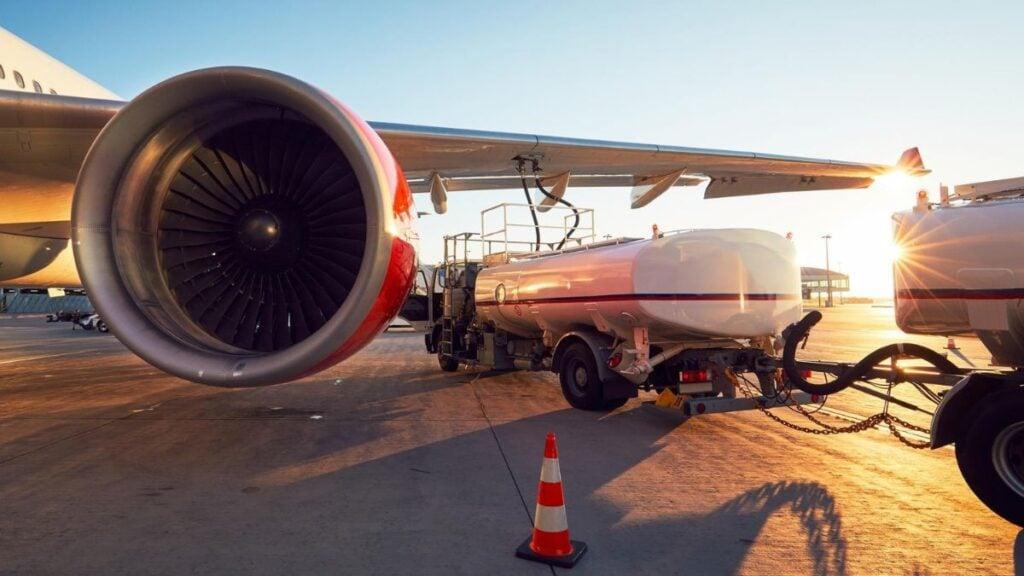Africa-Press – South-Africa. With most local fuel refineries having shut down and airports being hamstrung by dated legislation to get alternative sources, South Africa could run out of jet fuel by October.
This is according to Avhapfani Tshifularo, CEO of the South African Petroleum Association, who says the country’s aviation sector is on the brink of another fuel crisis.
This could see major airports like OR Tambo International and others at risk of severe disruptions as it heads into the busy tourism season.
In December 2024, OR Tambo, the country’s busiest airport, experienced a fuel valve failure that caused widespread flight delays and cancellations.
Just a month later, a fire at the NATREF refinery—one of the last operational refineries in the country—led to a jet fuel shortage that left the industry scrambling to secure reserves.
Airports Company South Africa Group Executive for Operations, Terence Delamoney, told the SABC at the time that these recurring shortages are part of a broader problem in the country.
He explained that while airports once had access to five refineries for fuel, only two remain functional: NATREF in Sasolburg and Astron in Cape Town.
As a result, airports are now heavily reliant on imported fuel. This is a major shift in the sector that Tshifularo argues the country’s fuel import regulatory environment is not equipped to handle.
At a fuels industry forum in Johannesburg on 25 July, Tshifularo said the situation could worsen dramatically in the coming months.
NATREF is scheduled for planned maintenance between August and September, meaning its temporary shutdown will reduce the available domestic fuel supply.
“If regulatory issues aren’t resolved by October, we will be in serious trouble,” Tshifularo warned, highlighting longstanding flaws in the 1964 Customs and Excise Act as a significant obstacle.
The Act was designed in an era when fuel refineries were central to product distribution, and it has not been updated to reflect the industry’s current state.
“We’ve been lobbying the government, particularly National Treasury and SARS, for years. The Act was written with a model focused on the movement of product between refineries and depots, but the industry has changed,” he said.
Regulatory roadblock
Avhapfani Tshifularo, CEO of the South African Petroleum Association
Under the current legislation, fuel exports can only be conducted from a refinery or manufacturing facility, not from depots.
This presents a significant challenge now that South Africa’s major crude refineries have ceased operations.
Jet fuel imports face similar challenges. The law prohibits the importation of jet fuel into an import terminal unless it passes through a refinery.
With no operational refineries in key regions such as Durban, this legal requirement is becoming a significant problem.
“This was manageable when SAPREF and Natref refineries were operating in Durban, but now there’s a serious complication,” Tshifularo explained.
During the dangerously low jet fuel levels at OR Tambo at the beginning of the year, the industry had to reroute supplies through Matola in Mozambique to avoid a crisis.
However, this was delayed by three weeks while SARS processed a special interim licence.
Although this measure helped avert a disaster, the licence was revoked once the situation stabilised, and SARS has indicated it will not issue similar emergency permissions again.
Tshifularo said that even if stockpiles are built before NATREF’s upcoming shutdown, the numbers don’t add up.
NATREF typically supplies 25 million litres of jet fuel to OR Tambo via pipeline, with another 10 million litres delivered using coastal pipelines. “That creates another risk,” he said.
While the Treasury has acknowledged the issue and pledged to amend the Customs and Excise Act, Tshifularo cautioned that legislative changes will take too long to address the current crisis.
“We’re not going to get this done in 18 months. In the meantime, we face urgent problems around product movement within South Africa and to neighbouring countries,” he said.
He called for interim regulatory measures and fast-tracked administrative interventions to allow jet fuel imports through terminals and exports from depots.
Without these interventions, Tshifularo warned that the country could see a repeat of fuel emergencies across the whole of South Africa.
For More News And Analysis About South-Africa Follow Africa-Press






